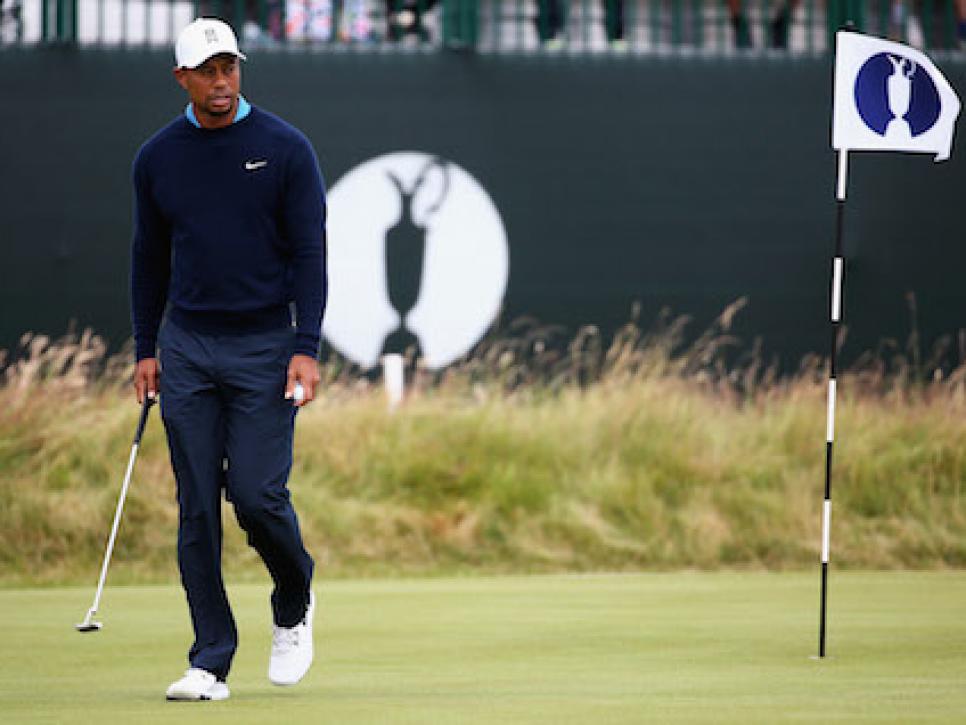The Loop
Missing Links: Scottish golfers' concern over independence referendum, and has Tiger or Hoylake changed more since '06?
By John Strege
Stories of interest you might have missed…
Two months from now is the Scottish independence referendum. "It is no trivial matter for the Scots who play professional golf," Karen Crouse writes in the New York Times. "For them, the uncertainties surrounding September's vote extend beyond what independence might mean for the European Union and NATO, to what it could mean for the British Open, the oldest of the four professional majors in golf, and the Summer Olympics."

(Getty Images photo)
"Eight years after his memorable Open triumph, Tiger Woods was reunited with Hoylake on Saturday. Yet it was difficult to tell which was the more changed: the course or the golfer?" James Corrigan writes in the Telegraph, examining the state of Woods' game and mind.
"Listen you guys, 20-year-olds don't get rattled by (anything) - trust me on that one," Jordan Spieth said while dropping in on a conversation about Oklahoma's victory over Alabama in the Sugar Bowl and a critique of Nick Saban and the Crimson Tide. "Two people left behind at the coffee machine stared at each other for a moment, wondering if the kid knew what he had just said. Spieth is 20," Doug Ferguson of the Associated Press writes in this look at Spieth's poise and maturity.
Englishman Harry Vardon won (by his count) 62 tournaments, including six British Opens. He designed courses, wrote instructional books, taught younger players and introduced plus-fours to the game. To start British Open week, Dave Anderson in the New York Times looks back at Vardon's career and influence on the game.
Even with Adam Scott holding the No. 1 spot in the World Ranking, Australian golf has several problems, former Aussie star Jack Newton writes in the Australian site news.com.au: "The handicap system is flawed; our junior programs are too focused on high-performance rather than grassroots participation; we lack playing opportunities for aspiring young professionals; and there seems to be a lack of cohesion between the organisations that are tasked with running the game."

